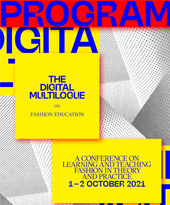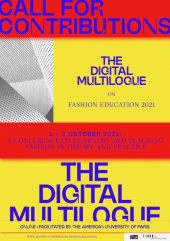
- About AUP
- History of AUP
- Mission & Core Values
- Vision and Leadership
- AUP Recognition
- Alumni Success
- Campus Development
- Arts at AUP
- Policies & Guidelines
- Academics
- Undergraduate
- Graduate Programs
- MA in Diplomacy and International Law
- MA in Global Communications
- MSc in Human Rights and Data Science
- MA in International Affairs
- MA in International Affairs, Conflict Resolution, and Civil Society Development
- MSc in International Management
- MSc in Strategic Brand Management
- Find Your Thesis Advisor
- Previous Programs
- Cultural Program
- Faculty
- Summer School
- Research Centers
- The Center for Critical Democracy Studies
- Upcoming Events
- Research Projects
- Fellows’ Publications
- Publishing
- Curriculum
- Community
- Partnerships
- Visiting Scholars
- CCDS Highlights
- Atelier de Théorie Politique – Paris
- Critical Theory 101: Future Directions and New Challenges
- Martti Koskenniemi on “The Law of International Society: A Road not Taken”
- Academic Freedom Symposium
- Tocqueville Colloque 2023
- Violent Turns Conference
- Degenerations of Democracy
- DEMOS21 Inaugural Event
- What Demos for the 21st Century?
- The Paris Centennial Conference
- Justice Stephen Breyer
- Civic Jazz - The Launch of the Center
- Past Events
- FR
- The Center for Writers and Translators
- The George and Irina Schaeffer Center for the Study of Genocide, Human Rights and Conflict Prevention
- The Joy and Edward Frieman Environmental Science Center
- The Center for Media, Communication & Global Change
- The Center for Critical Democracy Studies
- Departments
- Academic Resources
- Academic Affairs
- Academic Calendar
- Academic Resource Center
- Library
- Registrar's Office
- Teaching and Learning Center
- Accessibility & Accommodation Services
- AI@AUP: A Campus-Level Initiative
- Quai D'Orsay Learning Commons
- Paris as Classroom
- ACE
- Admissions
- Student Life
- Campus
- Student Leadership & Involvement
- Paris
- Support Services
- Student Life Help Desk
- Student Accounting Services
- Student Immigration Services
- Student Grievance Procedure
- Diversity and Inclusion
- Health & Well-being
- Digital Student Handbook
- News
- Events
- AUP Giving
- Housing Offer for 2025-2026
- IT Services
- Alumni
- About AUP
- History of AUP
- Mission & Core Values
- Vision and Leadership
- AUP Recognition
- Alumni Success
- Campus Development
- Arts at AUP
- Policies & Guidelines
- Academics
- Undergraduate
- Graduate Programs
- MA in Diplomacy and International Law
- MA in Global Communications
- MSc in Human Rights and Data Science
- MA in International Affairs
- MA in International Affairs, Conflict Resolution, and Civil Society Development
- MSc in International Management
- MSc in Strategic Brand Management
- Find Your Thesis Advisor
- Previous Programs
- Cultural Program
- Faculty
- Summer School
- Research Centers
- The Center for Critical Democracy Studies
- Upcoming Events
- Research Projects
- Fellows’ Publications
- Publishing
- Curriculum
- Community
- Partnerships
- Visiting Scholars
- CCDS Highlights
- Atelier de Théorie Politique – Paris
- Critical Theory 101: Future Directions and New Challenges
- Martti Koskenniemi on “The Law of International Society: A Road not Taken”
- Academic Freedom Symposium
- Tocqueville Colloque 2023
- Violent Turns Conference
- Degenerations of Democracy
- DEMOS21 Inaugural Event
- What Demos for the 21st Century?
- The Paris Centennial Conference
- Justice Stephen Breyer
- Civic Jazz - The Launch of the Center
- Past Events
- FR
- The Center for Writers and Translators
- The George and Irina Schaeffer Center for the Study of Genocide, Human Rights and Conflict Prevention
- The Joy and Edward Frieman Environmental Science Center
- The Center for Media, Communication & Global Change
- The Center for Critical Democracy Studies
- Departments
- Academic Resources
- Academic Affairs
- Academic Calendar
- Academic Resource Center
- Library
- Registrar's Office
- Teaching and Learning Center
- Accessibility & Accommodation Services
- AI@AUP: A Campus-Level Initiative
- Quai D'Orsay Learning Commons
- Paris as Classroom
- ACE
- Admissions
- Student Life
- Campus
- Student Leadership & Involvement
- Paris
- Support Services
- Student Life Help Desk
- Student Accounting Services
- Student Immigration Services
- Student Grievance Procedure
- Diversity and Inclusion
- Health & Well-being
- Digital Student Handbook
- News
- Events
- AUP Giving
- Housing Offer for 2025-2026
- IT Services
- Alumni
Call for Contributions
1–2 October 2021, online, facilitated by The American University of Paris
Call for Contributions:
Download the Call for Participation as a .pdf file.
Education holds the potential to reinforce systems and to revolutionize them.
Fashion education has served and fed the current global fashion system.
It has also inspired and driven change in the fashion system.
What kind of fashion education is needed NOW?
- What kinds of fashion education are needed to build a more inclusive, just and beneficial (fashion) system?
- What kinds of fashion educational practices exist, can we share to learn from each other, and can we build together?
- How can we turn our reflections into actions?
These three questions lead the second Multilogue on Fashion Education – A Conference on Learning and Teaching Fashion in Theory and Practice. While the first Multilogue 2020 brought us together, created multiple dialogues and initiated some collaboration, this year’s two-day global conference is focused on building and acting together – on the connective, constructive and transformative forces of fashion education.
Over the past thirty years fashion has significantly changed as an idea, professional practice, field and industry. The global fashion system has seen extreme acceleration due to processes of technological permeation, globalization and marketization. Part of this change is its considerable digital reach. As educators and practitioners of fashion we face a vacuum concerning its meaning, as well as closely related, complex social, cultural and environmental questions, especially in times of global health, climate and democracy crises. At the same time, fashion education has expanded substantially. Yet this field remains underanalyzed with few publications and little formalized professional development, connection and discussion. There are growing quantitative and qualitative discrepancies between education, fields of activities and societal relevance and responsibilities.
We believe that fashion education is interdisciplinary, connective and experiential. It can foster creative as well as critical thinking and making, transcending the boundaries of its field. It can challenge and transform economic and political systems, systems of thought, value systems and fashion systems in their interrelatedness.
The Multilogue on Fashion Education 2021 aims to explore the overarching themes and some of the following questions through papers, workshops, project presentations, panel discussions, roundtables, exhibitions and a student think tank:
- What does fashion education mean in different places, defined by local cultures, traditions and industries that are globally connected and dramatically changing?
- How can different fashion educational approaches and practices learn from each other?
- What can we learn from other educational fields and practices?
- What should students of fashion be able to do, what should they know, experience and value?
- What are constructive and transformative contents, methods and outcomes in learning and teaching fashion?
- How do we make fashion education more inclusive and diverse?
- How can we create a constructive understanding and interplay between practice and theory?
- How can we create a reasonable interplay between fashion and technology, the physical and digital in and through education?
- What relationships does or should fashion education foster with the fashion industry?
- How can we seize the visibility of fashion, its transformative power, its potential as social intermediary?
The Digital Multilogue on Fashion Education 2021: A Conference on Learning and Teaching Fashion in Theory and Practice is a participatory and outcome-oriented space focused on the learning and teaching of fashion at tertiary level. It aims to explore and illustrate the diversity and complexity of the field and the practices of fashion education. This conference thus seeks to inspire mutual learning, collaborative research and shared action – fashion educations for NOW.'
Organizers:
- Prof Dr Renate Stauss (Fashion Studies, Department of Global Communications, The American University of Paris, France)
- Prof Franziska Schreiber (Fashion Design, Institute of Experimental Fashion & Textiles Design, Berlin University of the Arts)
Advisory Board:
- Prof Zowie Broach (Head of Programme Fashion, The Royal College of Art, London, UK)
- Prof Dr Elke Gaugele (Fashion and Styles, Education in the Arts, Academy of Fine Arts Vienna, Austria)
- Prof Dr Christina Moon (Fashion Studies, Parsons, The New School, New York, US)
- Prof Alistair O’Neill (Fashion History and Theory, Central Saint Martins, London, UK)
- Dr Valerie Steele (Director & Chief Curator, The Museum at the Fashion Institute of Technology, New York, US)
- Prof Dilys Williams (Director of Centre for Sustainable Fashion, London College of Fashion, UAL, UK)
We invite contributions in the following formats:
- 15-minute papers
- 90-minute “Between” Workshops
- 3-minute project presentation films
- See format details below
Details of submission:
- 15 April 2021: deadline for Call for Contributions
- 15 June 2021: publication of selection of papers, workshops and films
- 1 September 2021: submission of final films (final papers do not need to be submitted)
- Abstracts of 250 words with indication of theme, format, title and five keywords
- Author information (name, job title, academic affiliation / organisation, contact details)
- Principal language of conference proceedings: English
- Submissions through ConfTool at http://fashioneducation.aup.edu
All submissions will be evaluated in a double-blind review process. A selection of contributions will be published as a book.
Participation:
- 30 June 2021: publication of programme
- 30 June 2021: opening of registration
- participation will be free of charge, registration required
Contact:
fashioneducation![]() aup.edu
aup.edu
We look forward to your contributions!
Details of contribution formats:
15-minute papers
Aims:
- to explore and illustrate the diversity and complexity of the field and practices of fashion education
- to share research concerning didactic, pedagogic and epistemological questions
- to inspire a greater understanding of the pasts, presents and futures of the field
- to inspire future research and action
90-minute “Between” Workshops
Aims:
- To provide an opportunity for fashion educators and students of different specialism and institutions to meet, exchange experience, to learn from each other and develop ideas together
- To facilitate outcome-oriented exchange which enables all voices to sound
- To strengthen peer-to-peer learning
- To foster cross-disciplinary and trans-cultural reflection and collaboration
- To turn reflections into action
Format:
- Interactive small-scale online workshops, mini-multilogues – facilitated by two or more fashion educators or intermediaries from different educational, disciplinary or cultural contexts
- Subjects of current relevance for fashion education, and/or pedagogic and didactic challenges
- Including short inputs and different exploratory practices, such as debating, making, writing, performing or drawing – with a clear outcome orientation
Timing:
- 90 minutes
- Workshops will be scheduled on both conference days, workshops can be offered twice – please indicate your preference of date and frequency
Participants:
- Max 15 fashion educators and students
- A list of participants & contact details will be available before the workshop, tasks or texts can circulated in preparation of the workshop
Platform:
- Online, tbc
- Workshops will not be recorded
Access:
- Registration required (registration opens 1 September, first come basis)
- Free of charge
3-minute project presentations films
Aims:
- To introduce innovative learning and teaching projects, practices and institutions
- To develop a greater awareness of the plentitude and plurality of fashion education
- To showcase the didactic, mediating and social potential of fashion also beyond tertiary education
Format:
- Common video file formats
- Submissions of abstracts should indicate thematic and visual concept and wider relevance
- Final films need to be submitted 1 September 2021
Timing & screening:
- Max. 3 minutes
- Screenings will take place on both conference days

